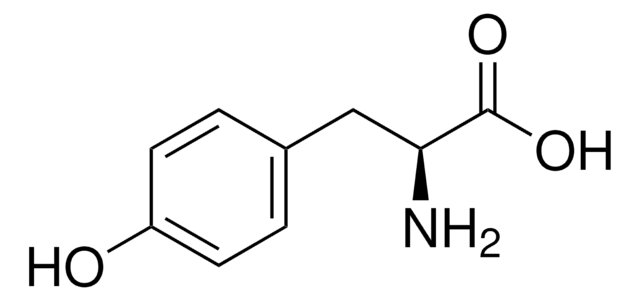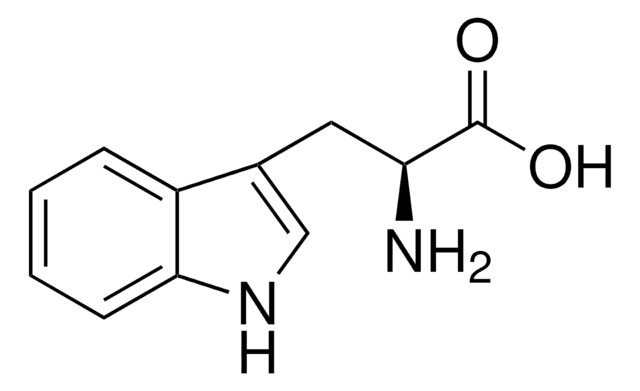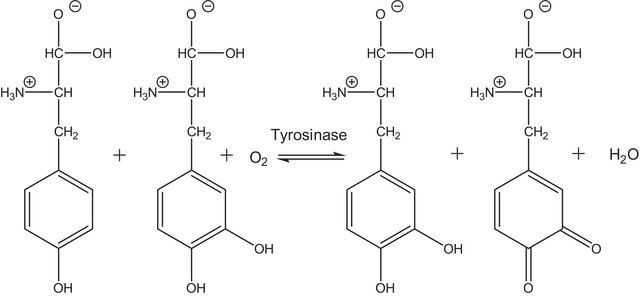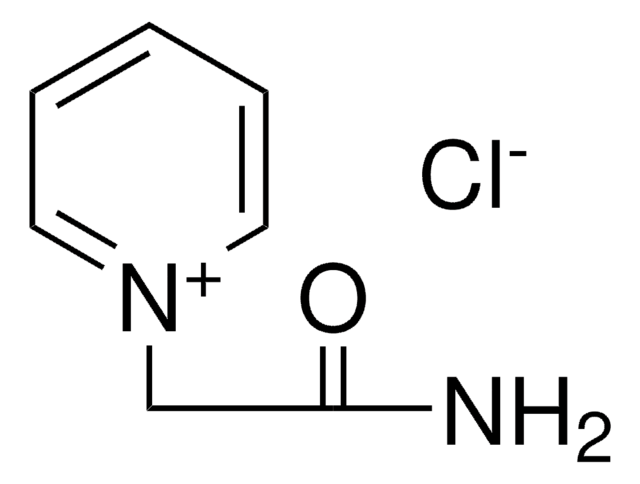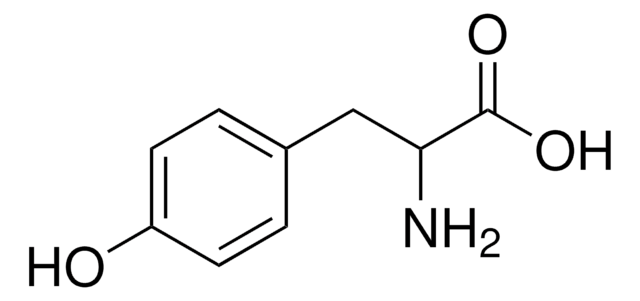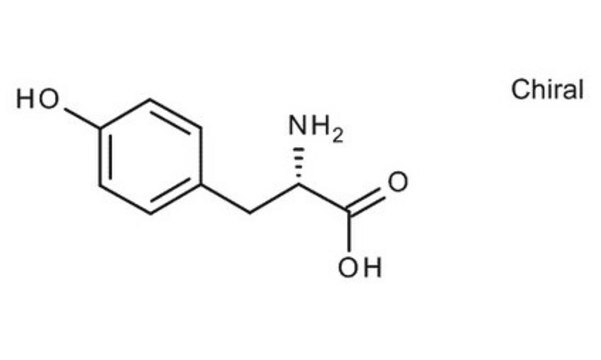T3754
L-Tyrosine
reagent grade, ≥98% (HPLC)
Synonym(s):
(S)-2-Amino-3-(4-hydroxyphenyl)propionic acid, 3-(4-Hydroxyphenyl)-L-alanine
About This Item
Recommended Products
grade
reagent grade
Quality Level
assay
≥98% (HPLC)
form
powder
color
white to off-white
mp
>300 °C (dec.) (lit.)
solubility
1 M HCl: soluble 50 mg/mL
application(s)
detection
SMILES string
N[C@@H](Cc1ccc(O)cc1)C(O)=O
InChI
1S/C9H11NO3/c10-8(9(12)13)5-6-1-3-7(11)4-2-6/h1-4,8,11H,5,10H2,(H,12,13)/t8-/m0/s1
InChI key
OUYCCCASQSFEME-QMMMGPOBSA-N
Looking for similar products? Visit Product Comparison Guide
Application
Biochem/physiol Actions
Other Notes
Storage Class
11 - Combustible Solids
wgk_germany
WGK 1
ppe
dust mask type N95 (US), Eyeshields, Gloves
Choose from one of the most recent versions:
Certificates of Analysis (COA)
Sorry, we don't have COAs for this product available online at this time.
If you need assistance, please contact Customer Support.
Already Own This Product?
Find documentation for the products that you have recently purchased in the Document Library.
Customers Also Viewed
Articles
Proteinase K (EC 3.4.21.64) activity can be measured spectrophotometrically using hemoglobin as the substrate. Proteinase K hydrolyzes hemoglobin denatured with urea, and liberates Folin-postive amino acids and peptides. One unit will hydrolyze hemoglobin to produce color equivalent to 1.0 μmol of tyrosine per minute at pH 7.5 at 37 °C (color by Folin & Ciocalteu's Phenol Reagent).
Protocols
Proteases break peptide bonds. In the lab, it is often necessary to measure and/or compare the activity of proteases. Sigma's non-specific protease activity assay may be used as a standardized procedure to determine the activity of proteases, which is what we do during our quality control procedures.
Measure and compare the activity of proteases with this non-specific protease activity assay using casein. Use this assay as a standardized procedure to determine the activity of proteases for quality control.
To standardize a procedure for the enzymatic assay of Protease using Casein as a substrate.
Our team of scientists has experience in all areas of research including Life Science, Material Science, Chemical Synthesis, Chromatography, Analytical and many others.
Contact Technical Service